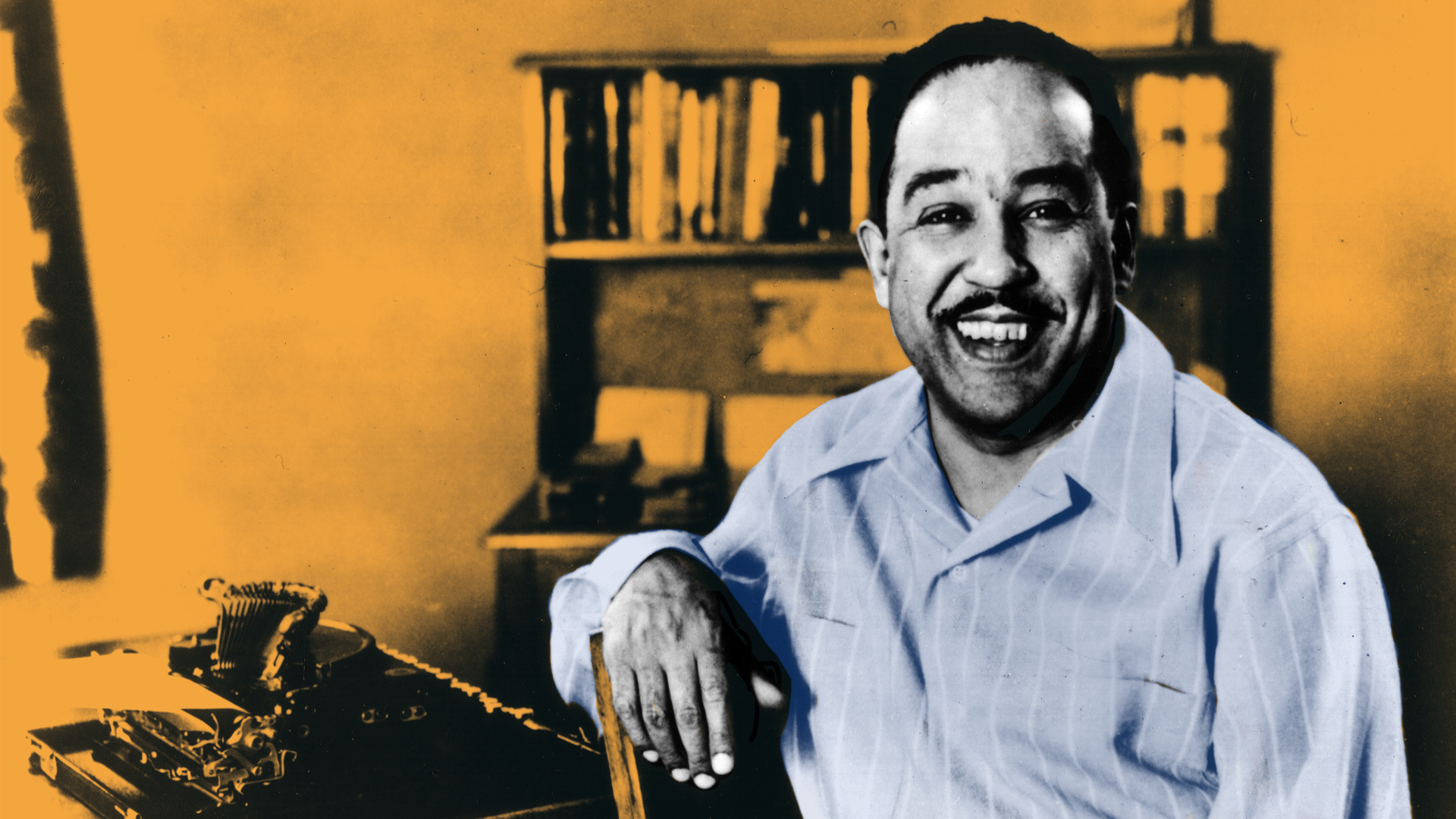Langston Hughes

Biography
Born in 1901 in Joplin, Missouri, Langston Hughes grew up between worlds: the child of a fractured family and a nation still defining freedom. Before he was a teenager, he'd already lived in six different cities. By the time he hit adulthood, he had worked on farms, cooked in kitchens, sailed to West Africa, and soaked in the art scenes of Paris. And through it all, he wrote—because writing was how he made sense of the world, and how he gave voice to those the world too often silenced.
In the 1920s, Hughes became a defining force in the Harlem Renaissance, a movement bursting with Black creativity, pride, and resistance. His first book, The Weary Blues, was jazz in poem form, filled with rhythm, truth, and a refusal to pretend. Hughes didn’t try to clean up Black life for white audiences. He wrote it as it was—raw, beautiful, complicated, joyful, and struggling. He believed in portraying everyday people: the workers, the dreamers, the lovers, the hustlers. His characters lived in Harlem, but their stories echoed in every corner of America.
Not everyone applauded. Some critics called his work messy, low-class, even disgraceful. But Hughes didn’t flinch. He knew exactly what he was doing: lifting up the lives and language of people who had been pushed to the margins. In his own words, 'We build our temples for tomorrow, strong as we know how, and we stand on top of the mountain free within ourselves.' He saw the poetry in struggle, the resistance in laughter, and the brilliance in Blackness.
Hughes didn’t just write poems. He created plays, novels, essays, newspaper columns, children's books, and stories starring Jesse B. Semple, a working-class Harlem man with sharp wit and simple truths. Through Semple, Hughes showed the pain and humor of racism, the grind of poverty, and the quiet power of perseverance. His work was for the people because he believed in the people. He became the first Black American to live entirely off his writing, not because institutions loved him, but because communities saw themselves in his words.
Langston Hughes died in 1967, but his legacy is still loud. He reminds us that art isn't just decoration. That poetry can be both protest and prayer. That telling your story, exactly as it is, can shake the world. So here’s the question Hughes leaves us with: How will you use your voice? Will you speak up for what matters? Will you write, sing, build, and dream out loud? Because as Hughes showed us, being honest, open, and unafraid is the most radical act of all.
Langston Hughes showed that art is more than entertainment—it’s a reflection of life, a form of protest, and a tool for change. His poetry captured the complexity of Black life in America, blending pride, pain, humor, and hope. By celebrating everyday people and refusing to conform to literary norms that excluded Black voices, he redefined American literature. His work reminds us that representation matters—when people see their experiences in art, they gain power. If we fail to uplift diverse voices, we risk silencing entire histories. Hughes' legacy asks us: How will we ensure that all stories, especially those of the marginalized, are told and remembered?
?
How did Langston Hughes use poetry as a form of activism, and how do poets today continue that tradition?
Why did Hughes emphasize the everyday struggles and triumphs of Black Americans in his work?
What role did jazz and blues play in shaping Hughes’ poetic style? How does music influence literature today?
Hughes faced criticism for his political beliefs and racial themes. Why do you think some artists face backlash for addressing social issues?
How does Hughes' idea that ‘Black is beautiful’ connect to modern movements celebrating cultural identity?
Dig Deeper
Listen to Langston Hughes read one of his most iconic poems, 'The Negro Speaks of Rivers,' reflecting the depth and richness of African American heritage.
Discover more

Claudette Colvin
Claudette Colvin’s bold defiance of unjust Jim Crow laws came nine months before Rosa Parks’ more widely known protest and was a crucial spark in the fight to end bus segregation.

Sojourner Truth
Sojourner Truth was a formerly enslaved woman who became one of the most powerful voices in American history for abolition, women’s rights, and racial justice.

Ida B. Wells-Barnett
Ida B. Wells-Barnett was a fearless journalist and civil rights leader who exposed the truth about racial violence and demanded justice.
Further Reading
Stay curious!

